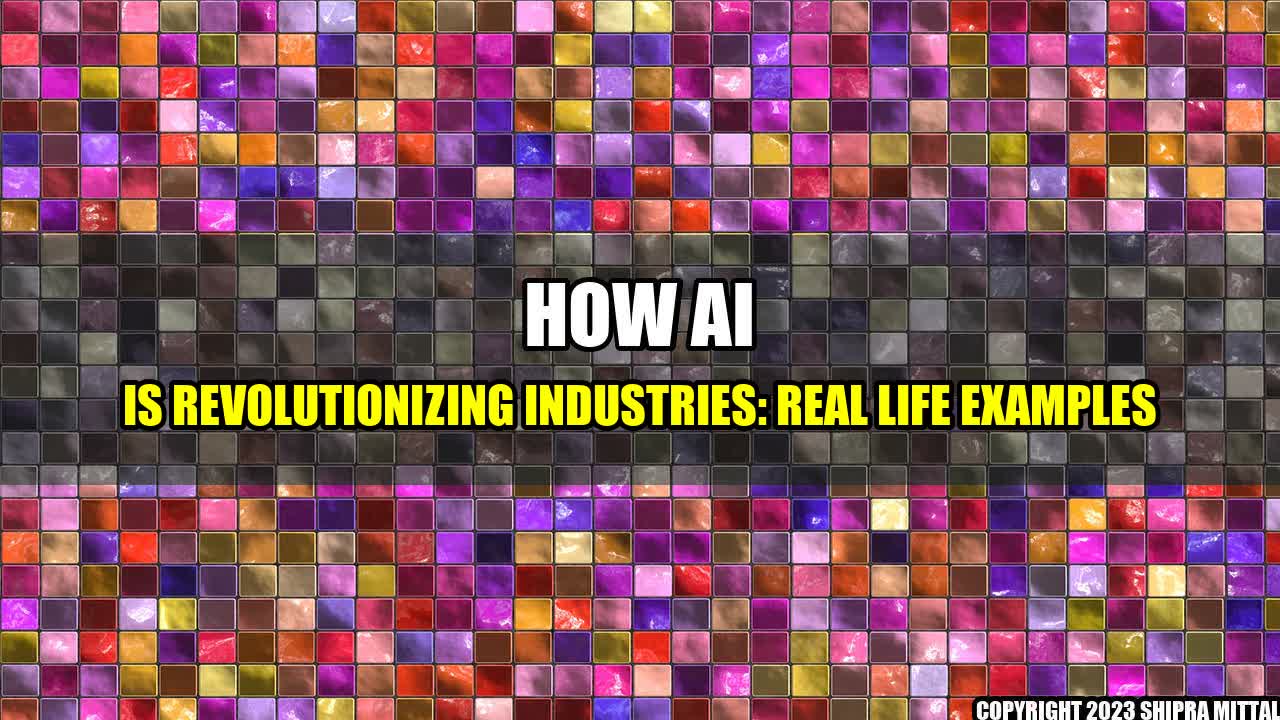The Future is Here: AI in the Business World
Imagine a world where machines can learn and make decisions on their own, a world where computers can identify faces, recognize speech, and even predict the stock market with astounding accuracy. This is not the stuff of science fiction - it's our reality. Artificial intelligence (AI) is transforming the way we live and work, and the business world is no exception.
Take Uber, for example. The ride-hailing giant uses machine learning algorithms to optimize surge pricing, route planning, and ETA predictions. Thanks to AI, Uber can offer personalized experiences to customers and drivers alike and keep its platform running smoothly.
Airbnb, on the other hand, applies AI to improve its search algorithms and recommend the most relevant listings to users. By analyzing data on user behavior, preferences, and demographics, Airbnb can offer personalized travel suggestions and enhance the overall user experience.
These are just a few examples of how AI is revolutionizing industries and changing the way we do business. From healthcare and finance to retail and manufacturing, AI is powering innovation and driving growth.
The Leading Companies in AI Innovation
Several companies are leading the charge in AI innovation and setting the standard for others to follow. Among them are:
- IBM Watson - a cognitive computing platform that can process vast amounts of data, analyze trends, and provide insights in natural language. IBM Watson is used in healthcare, finance, education, and other industries to deliver personalized solutions and improve decision-making.
- Salesforce Einstein - an AI-powered module that can automate tedious tasks, provide predictive analytics, and offer personalized recommendations. Salesforce Einstein is used by businesses of all sizes to enhance their CRM systems and improve customer engagement.
- Axon AI - a suite of AI-powered tools for law enforcement that can transcribe audio, analyze videos, and provide real-time insights. Axon AI is used by police departments around the world to solve crimes faster and more effectively.
These companies and many others are at the forefront of AI innovation, and their solutions are already making a difference in the world.
The Benefits and Challenges of AI Adoption
While AI has tremendous potential to transform businesses and drive growth, it's not without its challenges. One of the biggest challenges is the lack of trust in AI systems among both consumers and businesses. As AI becomes more sophisticated and powerful, it also becomes more opaque and difficult to comprehend. This makes it hard for people to understand how AI works and to trust its recommendations.
Another challenge is the ethical implications of AI. As AI becomes more pervasive in our daily lives, it raises questions about privacy, bias, and accountability. Who is responsible when an AI system makes a wrong decision or causes harm? How can we ensure that AI is used for the greater good and not just for profit?
Despite these challenges, the benefits of AI adoption outweigh the risks. Companies that embrace AI can gain a competitive edge, improve operational efficiency, and provide better customer experiences. By leveraging AI to automate routine tasks, businesses can free up their employees to focus on higher-value work and achieve more with less. And by using AI to analyze data, businesses can gain insights that were previously impossible to obtain, enabling them to make better-informed decisions and drive innovation.
Conclusion
AI is not just a buzzword - it's a game-changer. From retail and finance to healthcare and law enforcement, AI is transforming industries and creating new opportunities for businesses of all sizes. By embracing AI, companies can stay ahead of the competition, improve customer satisfaction, and drive growth. However, as AI becomes more advanced, it's important to address the challenges of trust, transparency, and ethics to ensure that AI is used responsibly and for the greater good.
Key Takeaways
- AI is transforming industries and changing the way we do business.
- Leading companies in AI innovation include IBM Watson, Salesforce Einstein, and Axon AI.
- Adopting AI can improve operational efficiency, provide better customer experiences, and drive innovation.
- It's important to address the challenges of trust, transparency, and ethics to ensure that AI is used responsibly and for the greater good.

Akash Mittal Tech Article
Share on Twitter Share on LinkedIn